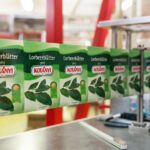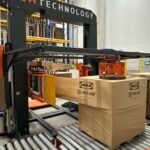Sustainability in the chemical industry
This is achieved, for example, through digitalization and efficiency measures as well as real-time decision aids based on simulation, that enable companies to achieve considerable savings potential, reduce operating costs and minimize their environmental impact. An energy management system enables savings to be made by comparing product lines in terms of energy consumption and CO2 emissions and supports compliance with reporting requirements as well as the realization of efficient production. Digital twins for the true-to-life mapping of chemical processes offer a detailed simulation of the interaction of individual process steps and chemical components in order to find the optimum operating point and compare different production scenarios.
Emissions and energy costs at a glance
Siemens offers tailor-made solutions for optimizing and controlling energy consumption and CO2 emissions for all stages of production. At field level, Siemens enables its customers to record and measure consumption data. Advanced solutions for data assessment, analysis and evaluation provide a detailed picture of a production facility’s energy mix and CO2 emissions. The production level is optimized through insights into process and automation control systems and enables effective control of production. This allows optimizations to be made in real time and ensures efficient processes.
The management level benefits from Siemens Energy Manager, a specialized tool that makes detailed dashboards, comprehensive KPIs and comparisons with other plants possible. It also enables segmentation and analysis according to Scope 1 and 2 emissions, i.e. direct emissions from company activities and facilities controlled by the company as well as indirect emissions from purchased and used energy. This solution provides a solid basis for making well-founded and sustainable business decisions.
Another solution – Siemens gPROMS Utilities – provides real-time decision support for managing and optimizing emissions and energy costs at a site. The digital application helps large process plants to minimize the daily demand for hydrocarbon fuels. The basis for this is formed by digital twins of energy systems, that precisely record all relevant interactions. With the help of model-based optimization technology, hundreds of operating decisions and restrictions of the constantly changing energy landscape can be taken into account and the most efficient operating settings can be selected at any time. This enables operators to reduce greenhouse gas emissions by 3 to 8 percent without making large investments.
Decarbonizing the supply chain
Another key element from Siemens is also helpful on the path to decarbonization: the SiGreen solution for calculating the product carbon footprint (PCF). Particularly in the area of dynamic PCFs, based on CO2 data from suppliers and consumption within the company, precise values can be determined for individual batches or product items. This initiative plays a key role in the Together For Sustainability initiative, an alliance of several chemical companies that want to make their supply chains more transparent and determine the PCFs of their products.
Siemens is also improving plant reliability with predictive maintenance tools based on artificial intelligence, that are used for preventive maintenance. This ranges from AI-based analysis of the data from the measuring points at field level to intelligent sensor technology that can detect anomalies in the vibration frequency of motors, mixers or other system components, for example. From this, conclusions can be drawn about imminent maintenance requirements for the machine.




